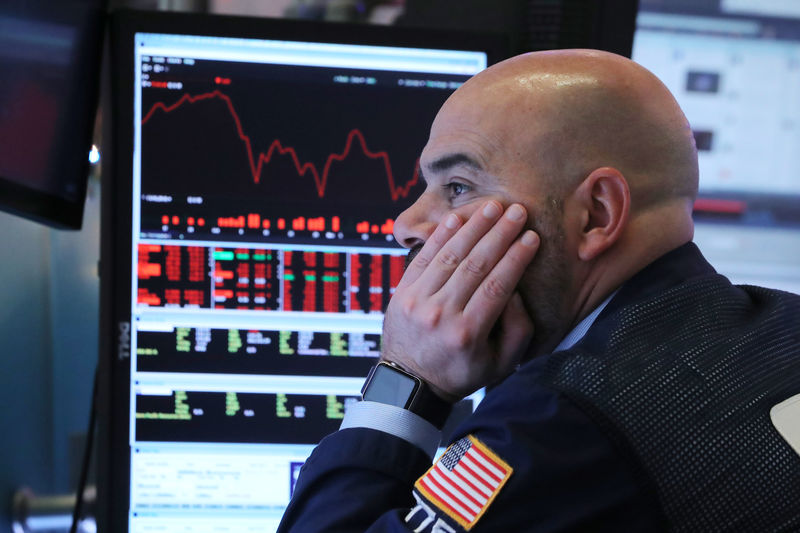 © Reuters. Trader works on the floor of the NYSE in New York
© Reuters. Trader works on the floor of the NYSE in New York2/2
By Trevor Hunnicutt
NEW YORK (Reuters) – U.S. fund investors showed skepticism of bonds despite gains in the market, pulling the most cash from the investments in five weeks, Lipper data showed on Thursday.
The $5.5 billion of net withdrawals from U.S.-based bond mutual funds and exchange-traded funds (ETFs) during the week ended Dec. 5 came despite strong demand pushing bond prices higher. The average U.S.-based taxable-bond fund gained 0.21 percent over that period from market performance, according to the research service.
U.S.-based bond funds have already posted $64.9 billion in withdrawals since October, marking the worst quarter since the same period in 2008, during the financial crisis.
For the moment, markets appear to be betting on weaker U.S. economic growth, softer inflation and a slowdown in Federal Reserve rate hikes. Yields, which fall as a bond’s demand rises, collapsed from 3.26 percent just last month to 2.89 percent on the benchmark U.S. 10-year Treasury note () as of Thursday. Stocks also sold off this week and U.S.-based equity funds posted $289 million of withdrawals. ()
The market is testing the Fed’s willingness to keep hiking rates and shrinking its cache of bonds bought after the 2007-09 global financial crisis to spur lending and investment, said Sage Advisory Services Ltd Co President Bob Smith.
“What the Fed is trying to do is deflate all the balloons in the party so the kids don’t notice it,” he said.
“The equity traders of this world are a little childish sometimes in terms of what they want, and there can be tantrums.”
Meanwhile, corporate leverage is near record highs, according to Fed data, and short-sellers’ bets on a decline in credit are building up in the ETF market.
During the latest week at least $1 billion poured out of investment-grade and leveraged-loan funds apiece, according to the Lipper data. Hundreds of millions more trickled out of high-yield bonds and Treasuries.
Emerging market stocks, meanwhile, pulled in $1.5 billion, the most cash since March. U.S. dollar weakness due to a pause in Fed hikes could lend a helping hand to countries that borrowed in greenbacks, making emerging markets one of the few places to take extra risk at the moment, Smith said.
Fusion Media or anyone involved with Fusion Media will not accept any liability for loss or damage as a result of reliance on the information including data, quotes, charts and buy/sell signals contained within this website. Please be fully informed regarding the risks and costs associated with trading the financial markets, it is one of the riskiest investment forms possible.
Source: Investing.com





























